LaTeX templates and examples — Journal articles
Discover a wide range of academic journal LaTeX templates for articles and papers which automatically format your manuscripts in the style required for submission to that journal.
Recent
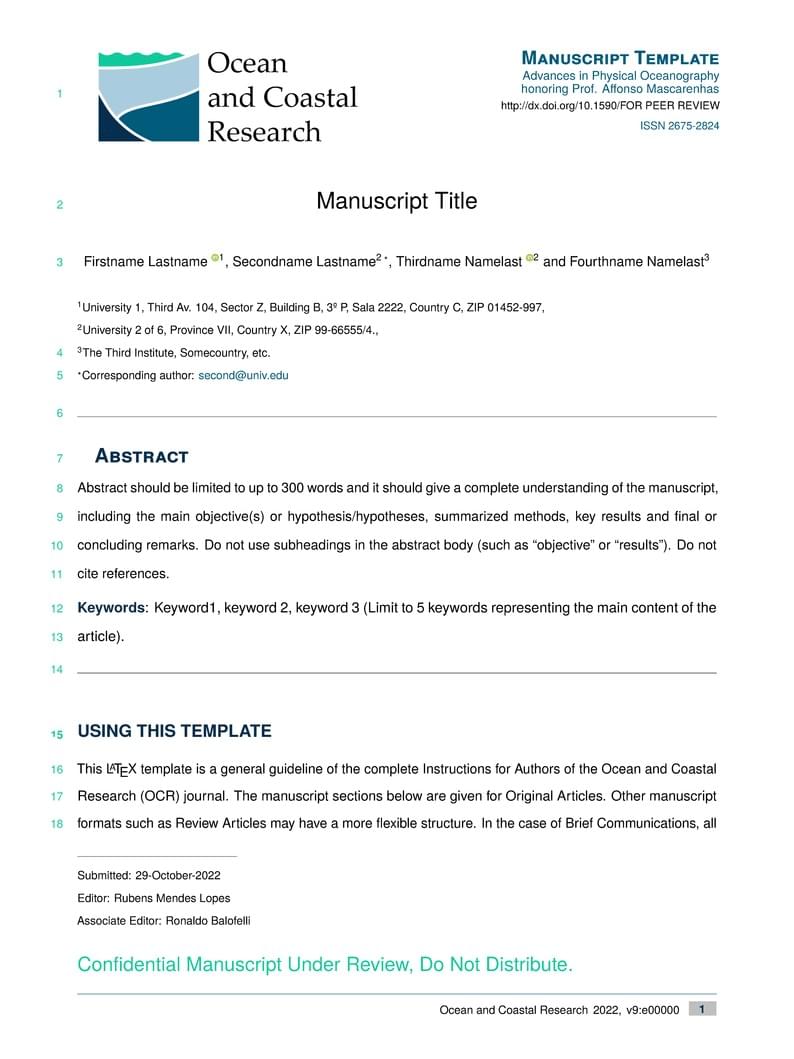
This is the template available at September 2023 for paper submission to Ocean and Coastal Research Journal. I basically downloaded the template and added to Overleaf Gallery and have no responsibility over the content. https://www.ocr-journal.org/index.php/instructions-for-authors
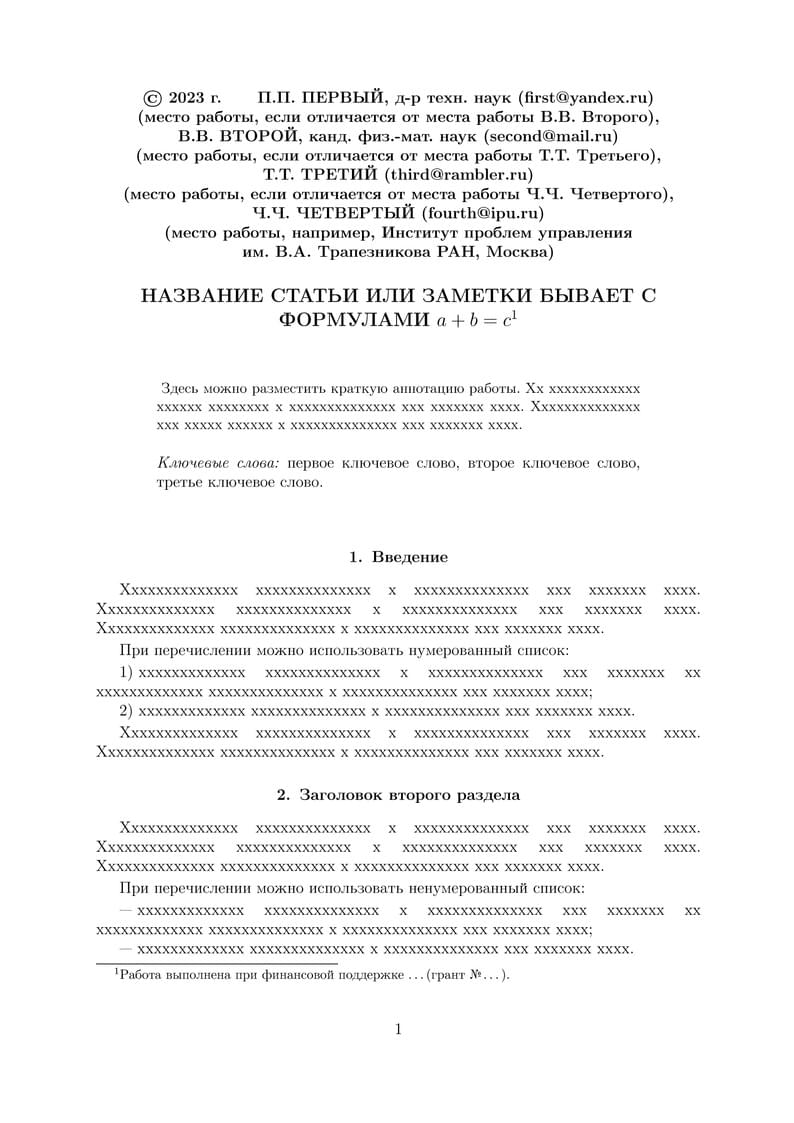
Стилевой файл журнала «Автоматика и телемеханика», « Automation and Remote Control»
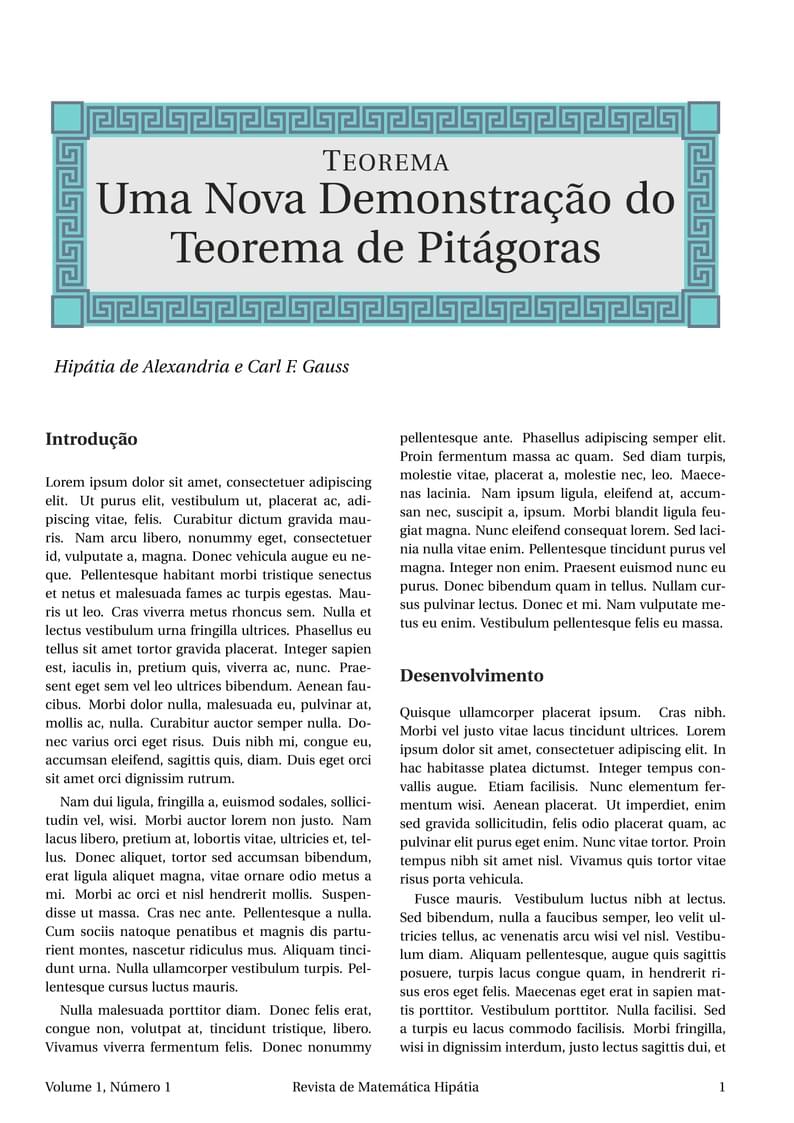
Modelo de artigo para a Revista de Matemática Hipátia da Universidade Federal da Bahia
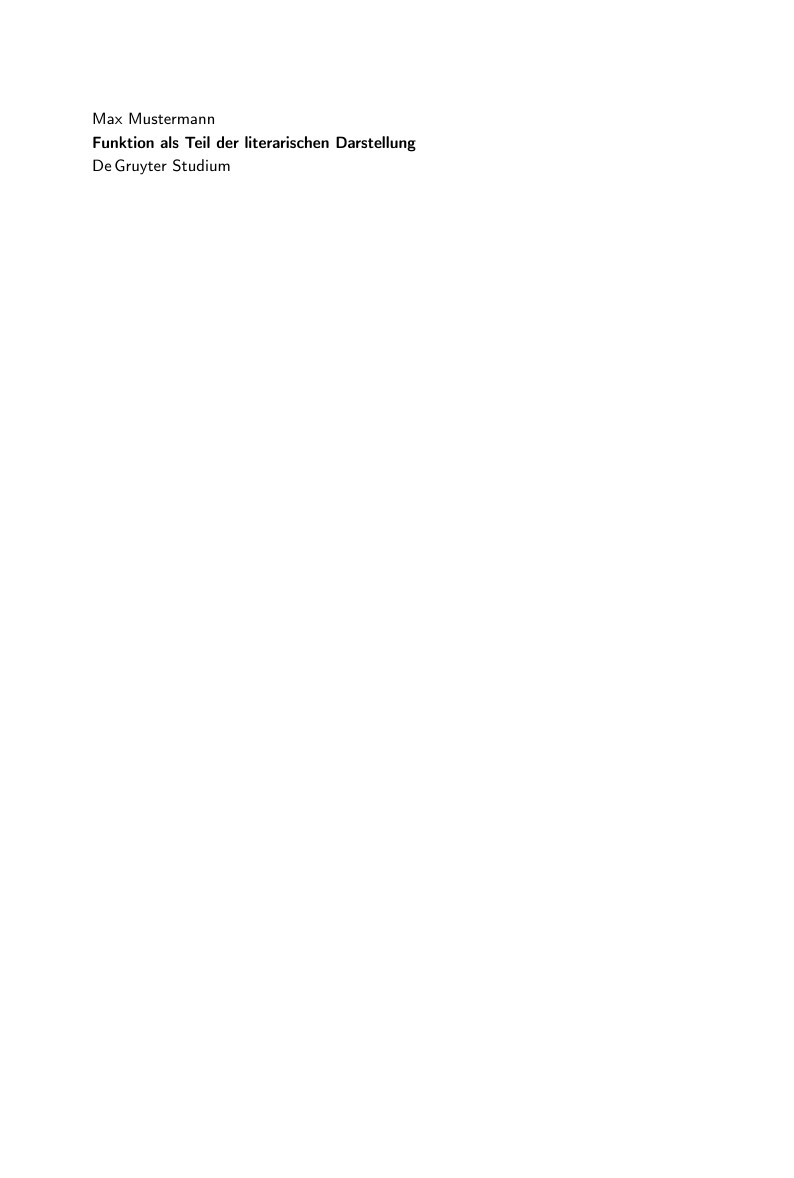
The dgruyter package assists in preparing manuscripts for de Gruyter with LaTeX. It provides some special commands for journal papers as well as for books and generates the required appearance. Together with corresponding font packages it allows to produce the final layout of De Gruyter books and journal articles.
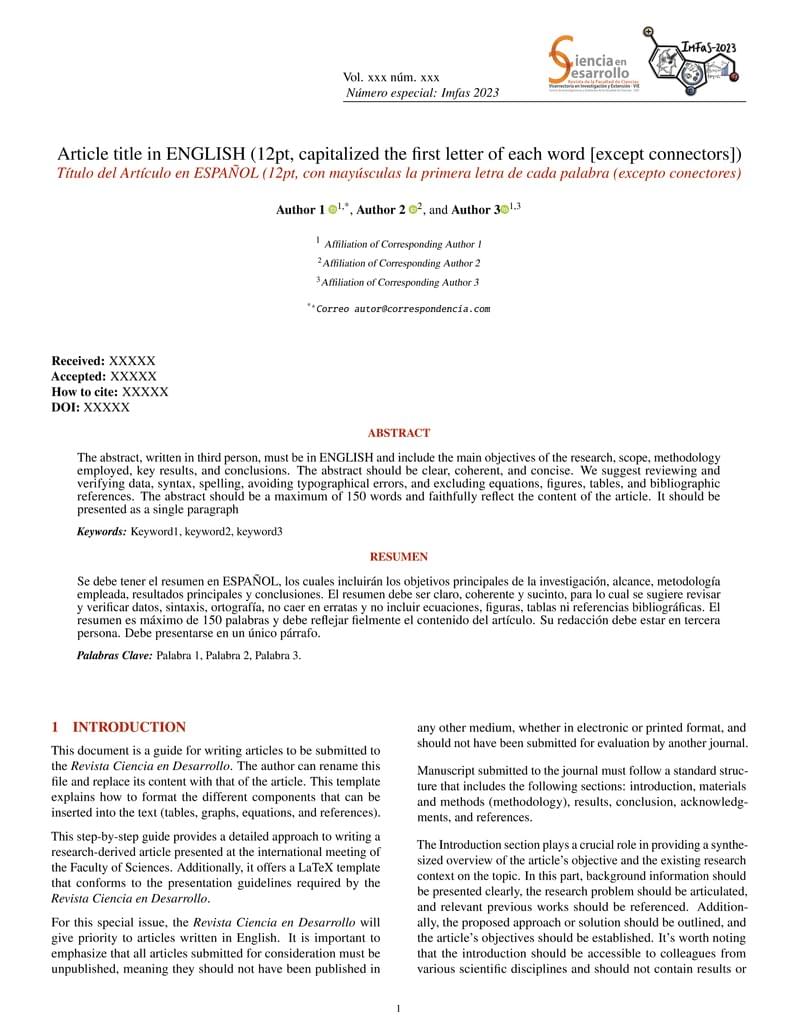
Special Format for Publications in the Special Issue of the 'Revista Ciencia en Desarrollo' for IMFAS 2023
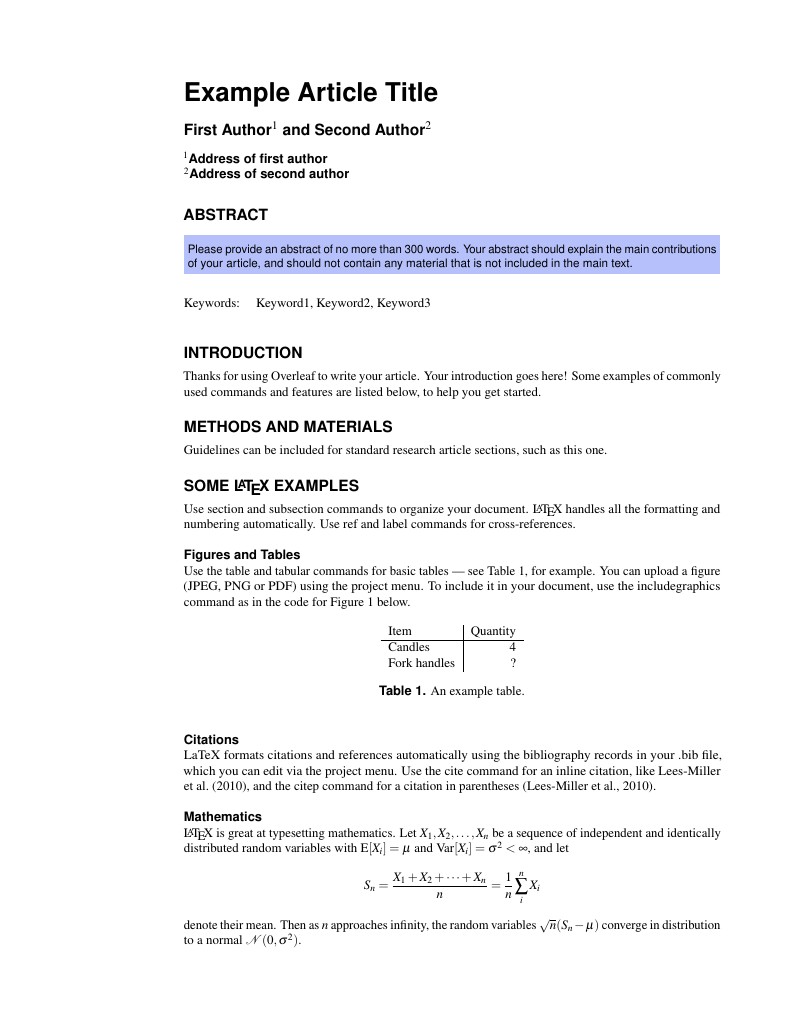
This is a basic journal article template which includes metadata fields for multiple authors, affiliations and keywords. It is also set up to use the lineno package for line numbers; these can be turned on by adding the 'lineno' option to the documentclass command.
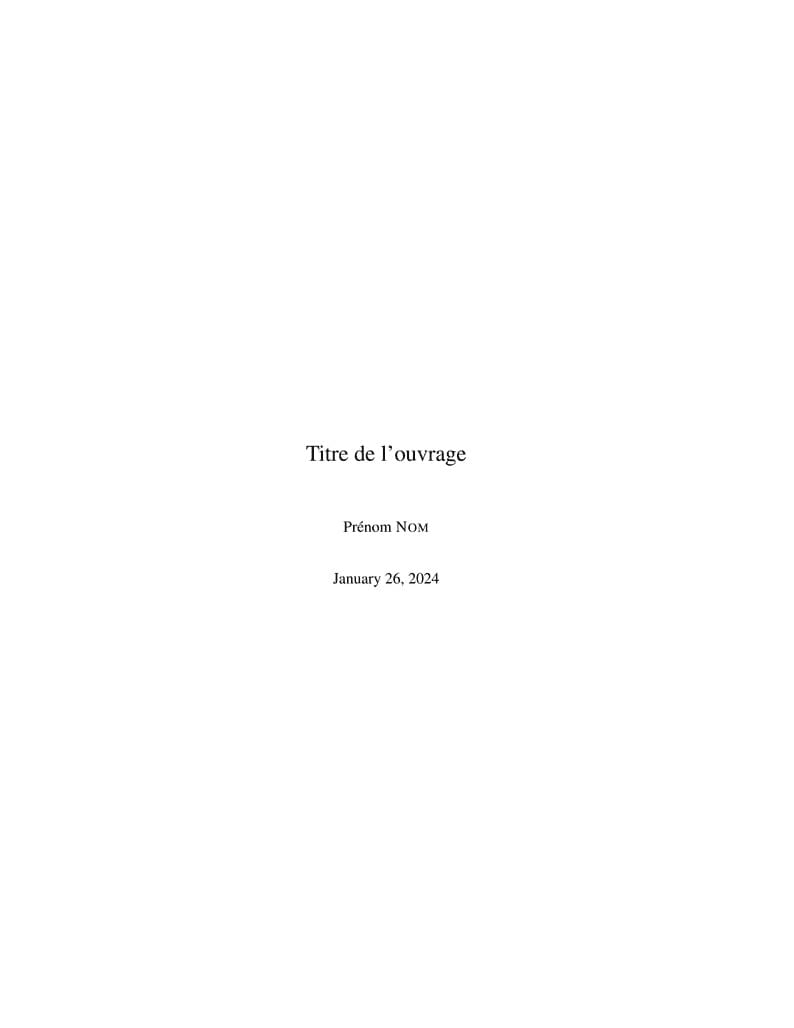
Le template français pour les ouvrages des collections. Pour plus d'information sur les consignes aux auteurs, consultez notre site : https://www.istegroup.com/fr/auteurs/
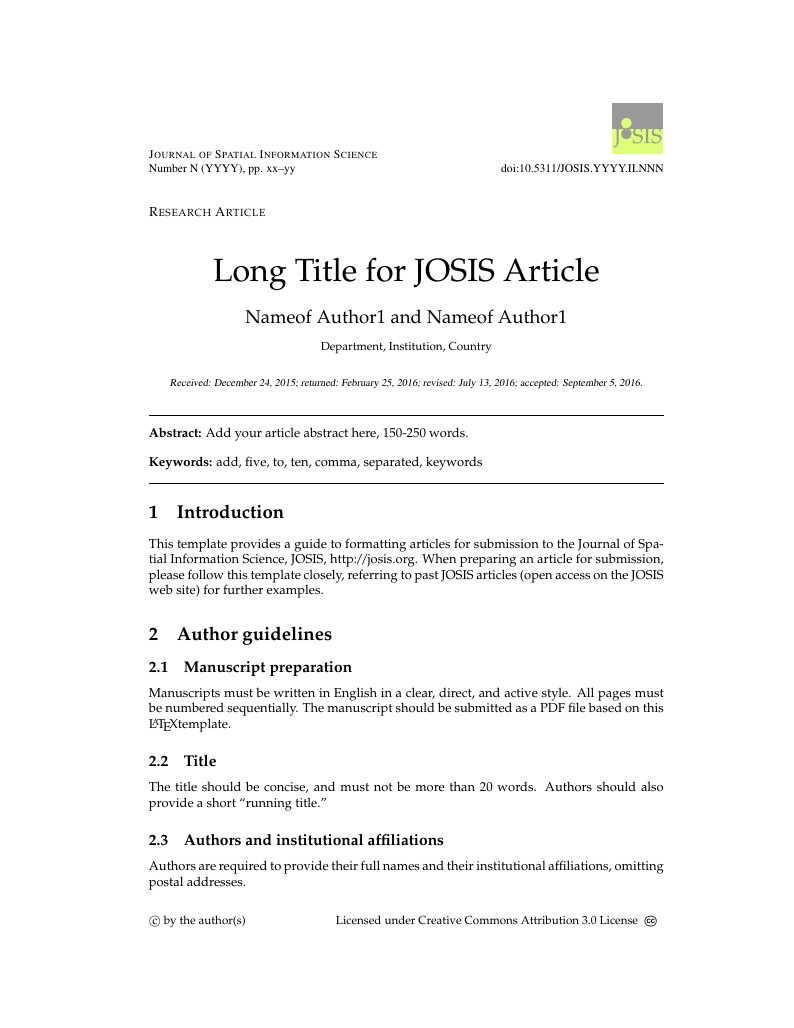
The Journal of Spatial Information Science (JOSIS) is an international, interdisciplinary, open-access journal dedicated to publishing high-quality, original research articles in spatial information science. This template can be used to format your article prior to submission to JOSIS. The template contain examples of JOSIS formatting and style for text, references, figures, tables, and algorithms.
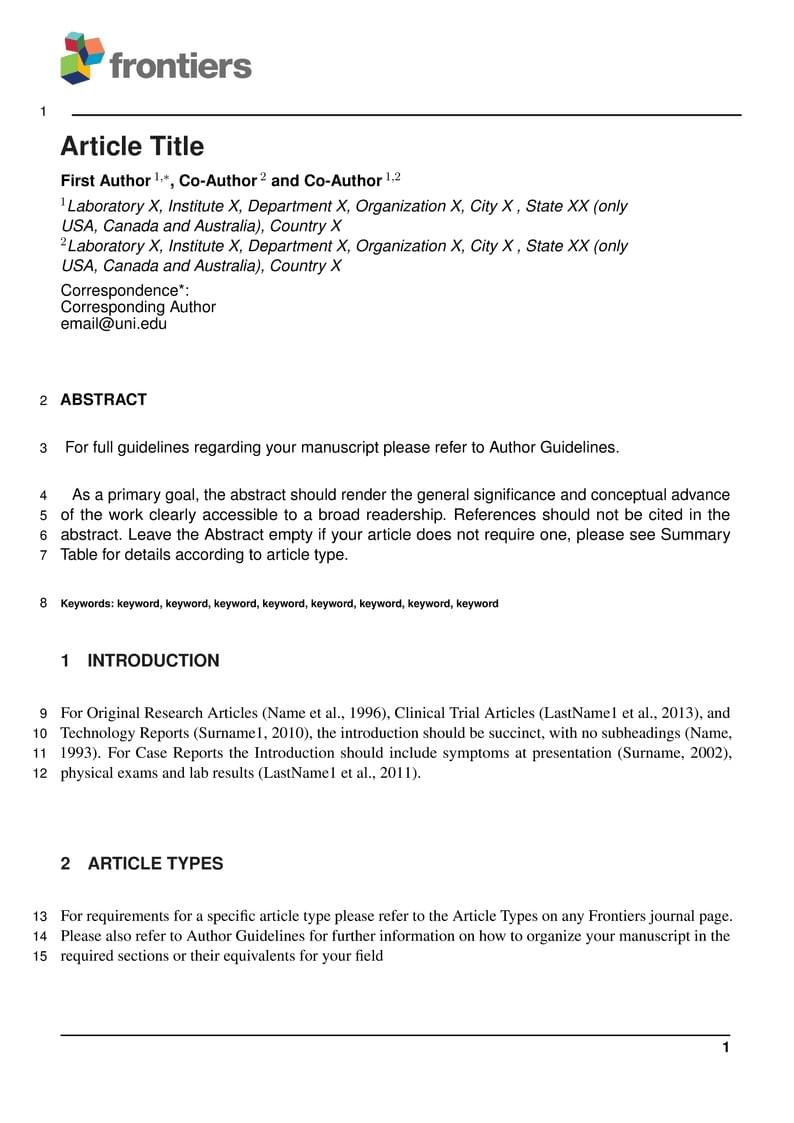
This template can also be downloaded from Github. This is just an example/guide for you to refer to when submitting manuscripts to Frontiers, it is not mandatory to use Frontiers .cls files nor frontiers.tex. This will only generate the Manuscript, the final article will be typeset by Frontiers after acceptance.
\begin
Discover why over 25 million people worldwide trust Overleaf with their work.